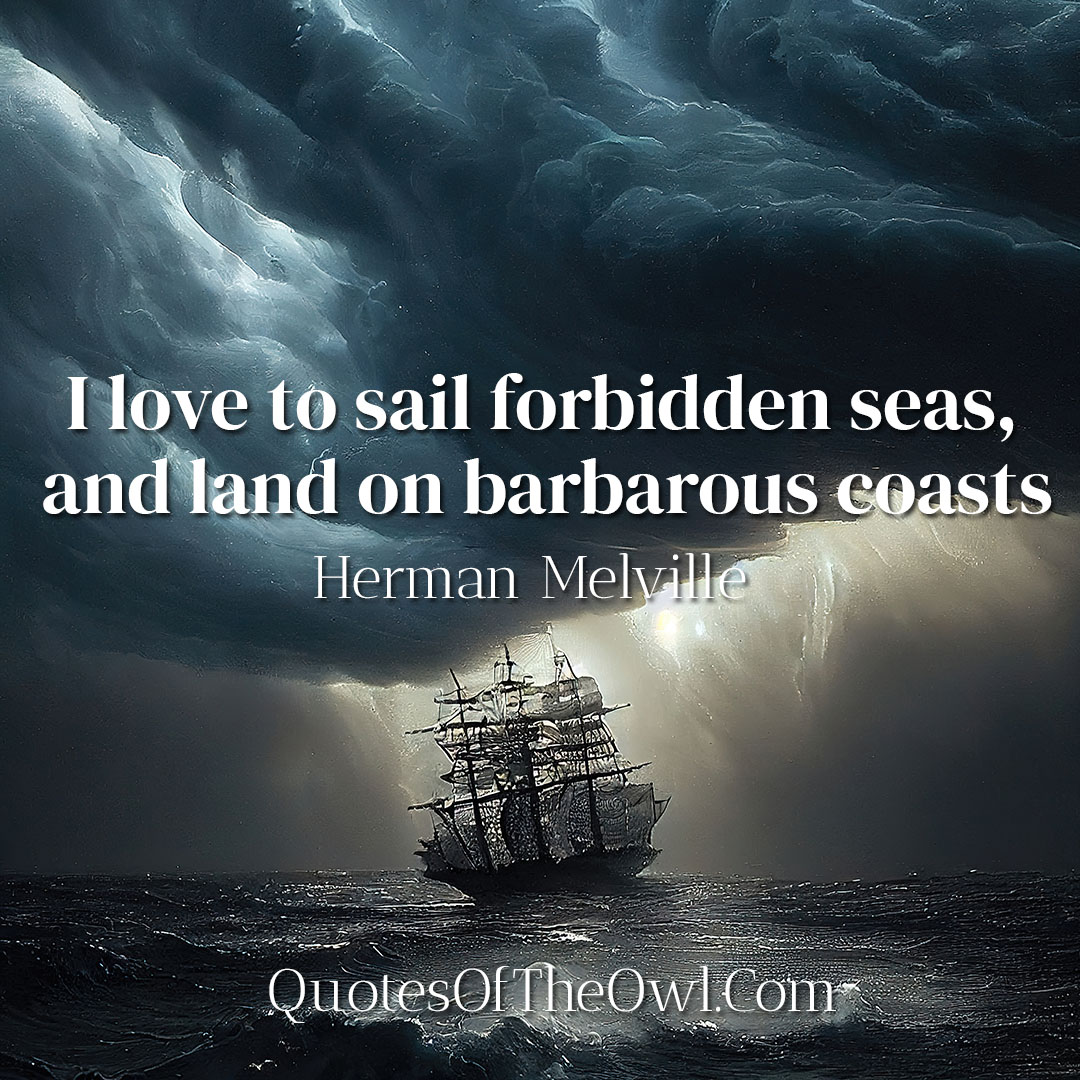What is the Meaning of Herman Melville’s Quote: “I love to sail forbidden seas, and land on barbarous coasts”?
Herman Melville, the acclaimed American author, penned the famous quote, “I love to sail forbidden seas, and land on barbarous coasts.” In literature, quotes often encapsulate profound ideas and emotions, and this quote is no exception. It speaks to the human spirit’s adventurous nature and the desire to explore the unknown. In this article, we will delve into the deeper meanings of Melville’s quote and its relevance in the context of literature and modern times.
Understanding the Quote
At first glance, the quote appears to express a love for sailing uncharted waters and discovering unfamiliar lands. Metaphorically, “forbidden seas” symbolize unexplored territories, while “barbarous coasts” signify unfamiliar and challenging destinations. This indicates a thirst for adventure and the excitement of stepping into the unknown.
The Life of Herman Melville
Before we delve into the meaning of the quote, let’s briefly explore the life of Herman Melville. Born in New York City in 1819, Melville had a diverse upbringing, having worked as a sailor, traveled to remote places, and experienced life at sea. These experiences greatly influenced his writing, shaping his fascination with exploration and the sea.
Melville’s Literary Works
Herman Melville is best known for his masterpiece, “Moby Dick,” an epic novel that explores themes of obsession, human nature, and the enigmatic world of the sea. However, his other works, such as “Typee” and “Billy Budd,” also exhibit a similar fascination with adventure, exploration, and the human spirit’s resilience.
The Theme of Exploration in Literature
The theme of exploration is a recurring motif in literature. Many authors have captured the allure of the unexplored and the quest for new experiences. From the journeys of Odysseus in ancient Greek literature to modern space exploration in science fiction, this theme reflects humanity’s inherent curiosity and thirst for knowledge.
The Romanticism Movement and Its Influence
During Melville’s time, the Romanticism movement was at its peak, emphasizing the individual, nature, and the human spirit’s longing for freedom and adventure. Melville’s quote resonates with these Romantic ideals, as it reflects the poet’s soul yearning for uncharted waters.
The Quest for Knowledge and Experience
At its core, Melville’s quote expresses the human desire for knowledge and experience. It highlights the importance of seeking growth and understanding through venturing into the unknown. The quest for knowledge and experience has always been an essential aspect of human nature.
The Allure of the Unknown
The allure of the unknown has captivated explorers, writers, and adventurers throughout history. It is the pursuit of the mysterious and the desire to unravel the secrets of the world that have led to significant discoveries and advancements in various fields.
Finding Meaning in Adventure
Beyond the literal interpretation, Melville’s quote holds philosophical significance. It symbolizes the human search for meaning through adventurous experiences. Stepping out of one’s comfort zone and embracing challenges can lead to profound personal growth and self-discovery.
Relatability to Modern Times
In today’s fast-paced world, Melville’s quote remains as relevant as ever. Despite technological advancements, the human spirit yearns for exploration and adventure. Whether it’s through physical travel or intellectual exploration, the pursuit of new experiences enriches our lives.
Conclusion
Herman Melville’s quote, “I love to sail forbidden seas, and land on barbarous coasts,” embodies the essence of human curiosity and the desire for adventure. Through his literature, Melville has touched upon a universal theme that continues to resonate with readers and explorers alike. As we navigate the seas of life, we are reminded of the profound joy that comes from embracing the unknown.
Explore the timeless wisdom of Herman Melville – Dive into his captivating quotes now!

